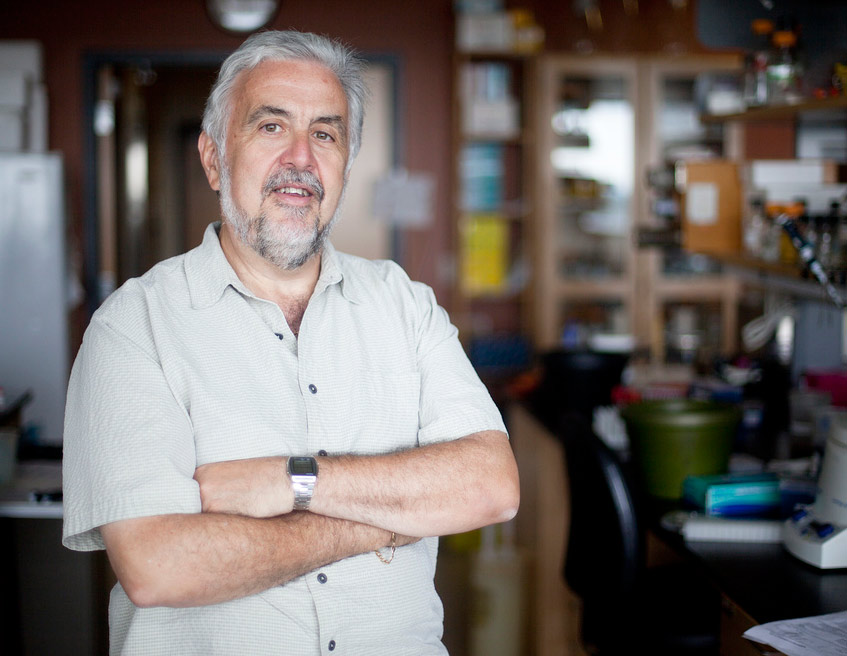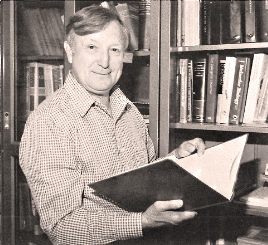
Dr. Timothy J. Donohue will present “Plugging Biology into the Energy Grid: A Grand Research & Education Challenge” at 4 p.m. Wednesday, April 22 in the Kusch Auditorium (FN 2.102).
An expert on biofuels and plant-based renewable energy technologies will be the featured speaker for the 2015 Royston Clowes Memorial Lecture at UT Dallas.
Dr. Timothy J. Donohue, a professor of bacteriology at the University of Wisconsin-Madison and director of the Great Lakes Bioenergy Research Center (GLBRC), will give the Clowes Memorial Lecture at 4 p.m. Wednesday, April 22 in the Kusch Auditorium (FN 2.102). His talk, “Plugging Biology into the Energy Grid: A Grand Research & Education Challenge,” is free and open to the public.
The lecture will highlight why and how plant biomass is thought to be a potentially renewable and sustainable source of liquid transportation fuels and chemicals that are currently derived from fossil fuels.
‘The need for biofuels, a source of clean renewable energy, is of great importance to society,” said Sneha Lal, a doctoral student in cell and molecular biology and one of the organizers of Donohue’s visit, which is sponsored by the UT Dallas Department of Biological Sciences and the Biology Graduate Student Organization.
“We chose professor Donohue as our speaker because he has immense knowledge and expertise on the study of how microbes harness and convert solar energy,” Lal said. “We’re looking forward to hearing from him about current research on the development of cellulosic biofuels and chemicals taking place at the Great Lakes Bioenergy Research Center.”

Dr. Royston Clowes, for whom the lecture series is named, was an expert on bacterial genetics. He led the University's biology division from 1968 to 1974 and again from 1979 until 1989.
Established by the Department of Energy in 2007, the GLBRC is headquartered at the University of Wisconsin-Madison, with member institutions that include a national laboratory, universities and a biotechnology company. Research focuses on increasing basic science knowledge of plant, microbial and enzyme systems needed to sustainably produce fuels and chemicals from the non-edible portion of plants. As director of the center, Donohue oversees nearly 400 scientists, students and staff who combine plant sciences, microbiology and engineering to develop new technologies for generating energy from renewable organic matter.
A national figure in research and science policy, Donohue is president of the American Society for Microbiology. He also is a fellow of the American Academy of Microbiology and the American Association for the Advancement of Science, and an executive committee member of the Wisconsin Energy Institute.
In addition to the Clowes Memorial Lecture, Donohue also will present a research seminar geared toward scientists and students at 10:45 a.m. in the Clark Center (CN 1.102). The seminar is titled “Biological Insight from Mining Bacterial Genomes.”
Dr. Royston Clowes was one of the founding faculty members and a longtime leader of the University's biology program. In 1965, he joined the faculty of the Graduate Research Center of the Southwest, which in 1969 became UT Dallas. He was head of the biology division from 1968 to 1974 and from 1979 until his death in 1989.
Clowes was an expert on bacterial genetics. His work in plasmid biology had implications for medicine and was at the center of recombinant DNA technology, which has had wide-ranging applications in biotechnology, laboratory research and drug development. His research also contributed to a better understanding of drug-resistance factors in disease-causing bacteria.
The Biology Graduate Student Organization at UT Dallas established the Royston Clowes Memorial Lecture Series in 1990 to honor Clowes’ contributions to the University and to biology.